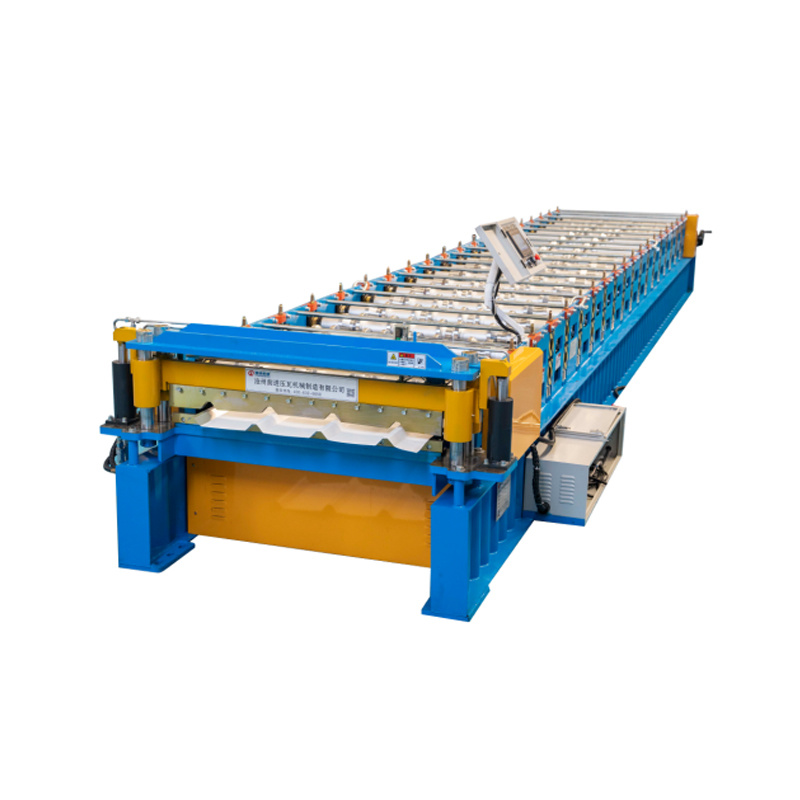Exploring the Benefits and Applications of Roll Forming Line Machines

Roll forming line machines are pivotal in the manufacturing sector, particularly in producing continuous metal profiles. This process involves feeding a metal strip through a series of rollers that progressively shape the material into the desired cross-sectional profile. The efficiency and precision offered by roll forming line machines make them an essential tool for manufacturers seeking to optimize production.
One of the primary advantages of roll forming line machines is their ability to produce high volumes of product with consistent quality. By employing automated systems, manufacturers can ensure that each piece meets exact specifications, reducing the need for extensive quality control measures. This consistency is crucial in industries such as construction, automotive, and appliances, where precision is paramount.
Additionally, roll forming is a cost-effective method for producing complex shapes. Traditional metal forming techniques often require multiple steps and additional tooling, which can increase production time and costs. In contrast, roll forming line machines streamline the process, allowing for the efficient creation of intricate designs in a single pass. This efficiency can lead to significant savings in labor and material costs.
Moreover, roll forming line machines are versatile, capable of working with a variety of materials, including steel, aluminum, and copper. This adaptability allows manufacturers to meet the specific needs of different projects and customers. The machines can also be customized to produce specific profiles, making them suitable for a wide range of applications, from metal roofing and siding to framing and reinforcement structures.
The technology behind roll forming line machines has also evolved significantly. Modern machines incorporate advanced features such as programmable logic controllers (PLCs) and computer numerical control (CNC), enabling precise control over the forming process. These advancements not only enhance the quality of the final product but also improve the overall efficiency of the production line.
In summary, roll forming line machines are an invaluable asset in the manufacturing industry, offering high efficiency, cost-effectiveness, and versatility. As businesses continue to seek ways to improve their production processes, the adoption of roll forming technology stands out as a key solution. Whether for producing construction materials or automotive components, these machines play a crucial role in meeting the demands of a rapidly evolving market. Embracing the capabilities of roll forming line machines can empower manufacturers to remain competitive and innovative in their respective fields.
One of the primary advantages of roll forming line machines is their ability to produce high volumes of product with consistent quality. By employing automated systems, manufacturers can ensure that each piece meets exact specifications, reducing the need for extensive quality control measures. This consistency is crucial in industries such as construction, automotive, and appliances, where precision is paramount.
Additionally, roll forming is a cost-effective method for producing complex shapes. Traditional metal forming techniques often require multiple steps and additional tooling, which can increase production time and costs. In contrast, roll forming line machines streamline the process, allowing for the efficient creation of intricate designs in a single pass. This efficiency can lead to significant savings in labor and material costs.
Moreover, roll forming line machines are versatile, capable of working with a variety of materials, including steel, aluminum, and copper. This adaptability allows manufacturers to meet the specific needs of different projects and customers. The machines can also be customized to produce specific profiles, making them suitable for a wide range of applications, from metal roofing and siding to framing and reinforcement structures.
The technology behind roll forming line machines has also evolved significantly. Modern machines incorporate advanced features such as programmable logic controllers (PLCs) and computer numerical control (CNC), enabling precise control over the forming process. These advancements not only enhance the quality of the final product but also improve the overall efficiency of the production line.
In summary, roll forming line machines are an invaluable asset in the manufacturing industry, offering high efficiency, cost-effectiveness, and versatility. As businesses continue to seek ways to improve their production processes, the adoption of roll forming technology stands out as a key solution. Whether for producing construction materials or automotive components, these machines play a crucial role in meeting the demands of a rapidly evolving market. Embracing the capabilities of roll forming line machines can empower manufacturers to remain competitive and innovative in their respective fields.
Key words:
recommend News
Share



